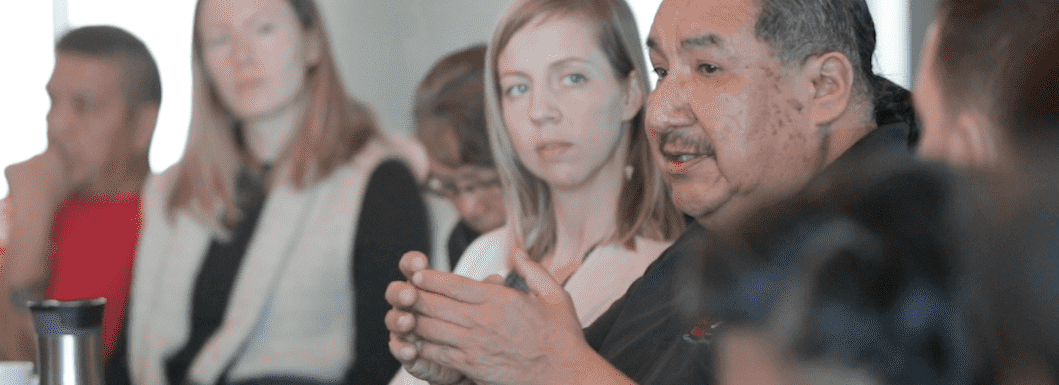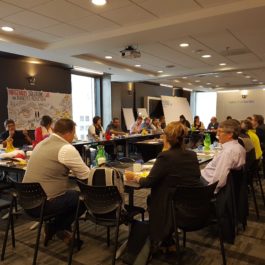Raven Indigenous Capital Partners & Aki Energy: The Outcomes Contract

Projects Sponsor
There is a long history of renewable energy projects that are conceived outside of communities being implemented with little to no consultation, ultimately resulting in a project that’s benefits leak out of the community and builds no long-lasting capacity for Indigenous energy sovereignty. The Renewable Energy Community-Driven Outcomes Contract (CDOC) developed by Raven Indigenous Capital Partners’ and Aki Energy is a culturally responsible alternative to this broken dynamic and has the potential to make it a thing of the past.
As passionate advocates for both environmental stewardship and Indigenous energy sovereignty, the Raven leadership team – composed of Paul Lacerte and Jeff Cyr, two Indigenous men, and Stephen Nairne – have led this initiative. Paul and Jeff have spent their careers working to improve the wellbeing of Indigenous peoples in Canada; they now dedicate their work to revitalizing an Indigenous economy through Raven Indigenous Capital Partners. Stephen provides his own extensive experience in the impact investing space.
Working with Aki Energy—an Indigenous social enterprise that invests in renewable energy and partners with Indigenous communities, training and hiring community members—the McConnell Foundation, Community Foundations of Canada, and others, the CDOC was co-created in 2017.
With Raven serving as a financial intermediary, the resulting contract is an innovative pay-for-success social finance tool capable of supporting Indigenous-led social enterprises across Canada. The innovation of the CDOC model comes from the constellation of outcomes and desire to scale being generated between the community and Aki, with investors and purchasers coming in secondarily to recognize their value. This fresh approach is a step towards re-imagining financing in a way that prioritizes community-defined outcomes and autonomy.
Their work has already unlocked a first round of impact investments for 125 geo-exchange units in four partner First Nations communities in Manitoba, resulting in over $4M being invested directly into indigenous communities. Installations are well underway and are expected to be complete in the coming months. These geo-exchange units will save community members 1,500,000 kWh of energy per year, resulting in a $983 per year savings on utility bills, helping to reduce energy poverty. By hiring and training locals in the process, there is increase in wealth at the community level improves and trades skills capacity is developed.
It was community members who decided what it was they wanted to achieve from the effort and their desired outcomes are the main drivers behind the investments. This community-centered approach and continued community involvement in the project is a key to its success. The CDOC model has already achieved, considerable, measurable benefits and this approach has the potential to be scaled and replicated to other Indigenous communities, increasing Indigenous energy sovereignty, reducing energy poverty and building renewable energy expertise in First Nations across Canada.














